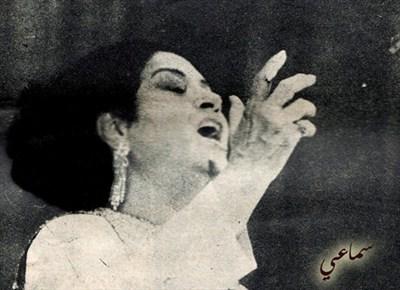A freedom revolution, or a revolution for male freedom?

The popular uprisings in North Africa have captivated the world as men, women, and children take to the streets to oppose corrupt and oppressive regimes. Following the people’s victory Amel Yacef points out that women’s rights may already be taking a backseat in Egypt, and she finds a glimmer of hope in the male-dominated Algerian media.
‘I am the people, I do not know the impossible, and I will not be satisfied with anything less than eternity,’ sang the Egyptian legend Oum Kalthoum over 60 years ago. A woman whose extraordinary voice won the absolute adoration and ultimate respect of men across the whole Arab world.
I hear you say: Arab men? Adoring and respecting an Arab woman? What’s next: Arab men don’t beat their wives? Arab men don’t subject their wives to veils and what not? Well, the ludicrous theory that all Arab men are abusers of women is equally as revolting as the theory that Arabs don’t have the genetic make-up to understand and live in a democracy.
As we mark International Women’s Day for the 100th time, it is important to understand that these despotic regimes in countries such as Egypt and Algeria have been controlling, using and abusing the education, justice, social and health systems for decades. Ultimately, when defunct, these systems turn into a dangerous beast that feeds on ignorance, division, small-mindedness and fear.
The 8th of March is a reminder of all that has been achieved so far, but also of all that needs to happen.
On all the major issues - female mortality rates due to domestic and gender-based violence; access to employment; salaries; political representation and access to wealth; sexual abuse and harassment, progress has stagnated or declined, according to the statistics. This has frustrated and angered a lot of Arab women.
In addition, the anger felt by Arab women is largely fuelled by patronising and ironic celebrations. You see, International Women’s Day is an occasion that most of the Arab governments insist on celebrating every year: parades, rallies, roses, little speeches or half a day off...a myriad of insignificant gestures betraying a very clear message: ‘You’re happy, yes? We shook your hand, now go back home.’ This kind of practice is a perfect illustration of the deeply patriarchal attitude of these governments.
So when the Egyptian women marched towards Tahrir Square on Tuesday the 8th of March, reciting poetry, singing the chants learnt in that very square less than a month ago, they handed out leaflets they had printed themselves stating:
We want to be represented in the new ruling structure, we want our rights to be officially recognised, we want to be fully integrated in the decision-making process, we want to participate in a meaningful way in the reconstruction of the country we liberated...with the men.
At official level, however, all indications are that these simple demands will not be met. Indeed, Egypt's new Prime Minister Essam Sharaf attempted to pacify the women’s calls by announcing the creation of an all-men committee to deal with the advancement of women, formed under the supervision of the cabinet (which has only one woman in its ranks). As well as this, no women were selected by the military council to be part of the ten-member constitutional committee responsible for making constitutional revisions.
Furthermore, when the Egyptian women marched on 8 March, many were denied the right to celebrate International Women’s Day as reports came in that a public debate degenerated into violence and resulted in targeted attacks on women.
These same women were at the forefront of the protests against Mubarak’s regime – organising, strategising and reporting the events. Now it appears their rights are being sidelined by a new government which could not have come into existence without their support.
In Algeria, a silent President Bouteflika organised a big rally for women; he did not make a single declaration, too busy shaking every woman’s hand. Despite this presidential exploit, the headline in one of the papers read, ‘A group of mothers have been violently beaten by the police for peacefully demanding to meet the Wali (lord mayor).’
Upon reading this I rejoiced, not because of the horrific story but because the article was written by a man, for a newspaper which is part of a semi-free press dominated by men...men who took a stand on International Women’s Day to defy the state by ignoring an insignificant, flawed presidential farce and instead drew attention to courageous, brave women.
Is it a sign of real change? Speaking about the Algerian War of Independence, Frantz Fanon said that the war for freedom and liberty was fought by everybody equally and brought profound change to the relationship between Algerian men and women.
Unfortunately, a short while after independence, women were pushed back into an obsolete role; like their European sisters who fought during World War II were sent back to the kitchen as soon as the Hitlerian threat was gone.
What about the Egyptian women then? Aren’t they a sign of change? Well, a month ago they were standing, screaming, never leaving that square; letting their anger explode with the same passion as the men. Now, only a short while after victory, these women are beginning to think that an Arab freedom revolution really means a freedom revolution for men.
I wonder if the ‘Star of the East’ Oum Kalthoum would object to a slight reworking of her lyrics: ‘I am the women, I do not know the impossible, and I will not be satisfied with anything less than my rights.’
Image top via Zealynn on Flickr.
